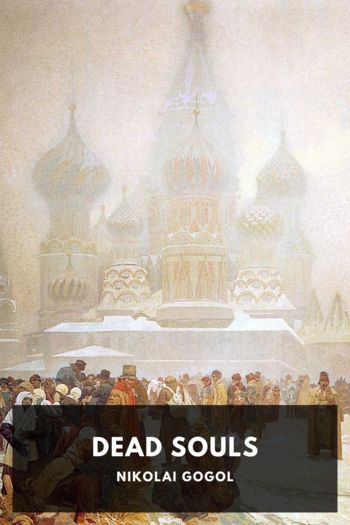Short Fiction - Nikolai Gogol (best selling autobiographies TXT) 📗

- Author: Nikolai Gogol
Book online «Short Fiction - Nikolai Gogol (best selling autobiographies TXT) 📗». Author Nikolai Gogol
Yankel turned to him and said that everything possible would be done; that his Ostap was in the city jail, and that although it would be difficult to persuade the jailer, yet he hoped to arrange a meeting.
Bulba entered the room with the three Jews.
The Jews again began to talk among themselves in their incomprehensible tongue. Taras looked hard at each of them. Something seemed to have moved him deeply; over his rough and stolid countenance a flame of hope spread, of hope such as sometimes visits a man in the last depths of his despair; his aged heart began to beat violently as though he had been a youth.
“Listen, Jews!” said he, and there was a triumphant ring in his words. “You can do anything in the world, even extract things from the bottom of the sea; and it has long been a proverb, that a Jew will steal from himself if he takes a fancy to steal. Set my Ostap at liberty! give him a chance to escape from their diabolical hands. I promised this man five thousand ducats; I will add another five thousand: all that I have, rich cups, buried gold, houses, all, even to my last garment, I will part with; and I will enter into a contract with you for my whole life, to give you half of all the booty I may gain in war.”
“Oh, impossible, dear lord, it is impossible!” said Yankel with a sigh.
“Impossible,” said another Jew.
All three Jews looked at each other.
“We might try,” said the third, glancing timidly at the other two. “God may favour us.”
All three Jews discussed the matter in German. Bulba, in spite of his straining ears, could make nothing of it; he only caught the word “Mardokhai” often repeated.
“Listen, my lord!” said Yankel. “We must consult with a man such as there never was before in the world … ugh, ugh! as wise as Solomon; and if he will do nothing, then no one in the world can. Sit here: this is the key; admit no one.” The Jews went out into the street.
Taras locked the door, and looked out from the little window upon the dirty Jewish street. The three Jews halted in the middle of the street and began to talk with a good deal of warmth: a fourth soon joined them, and finally a fifth. Again he heard repeated, “Mardokhai, Mardokhai!” The Jews glanced incessantly towards one side of the street; at length from a dirty house near the end of it emerged a foot in a Jewish shoe and the skirts of a caftan. “Ah! Mardokhai, Mardokhai!” shouted the Jews in one voice. A thin Jew somewhat shorter than Yankel, but even more wrinkled, and with a huge upper lip, approached the impatient group; and all the Jews made haste to talk to him, interrupting each other. During the recital, Mardokhai glanced several times towards the little window, and Taras divined that the conversation concerned him.
Mardokhai waved his hands, listened, interrupted, spat frequently to one side, and, pulling up the skirts of his caftan, thrust his hand into his pocket and drew out some jingling thing, showing very dirty trousers in the operation. Finally all the Jews set up such a shouting that the Jew who was standing guard was forced to make a signal for silence, and Taras began to fear for his safety; but when he remembered that Jews can only consult in the street, and that the demon himself cannot understand their language, he regained his composure.
Two minutes later the Jews all entered the room together. Mardokhai approached Taras, tapped him on the shoulder, and said, “When we set to work it will be all right.” Taras looked at this Solomon whom the world had never known and conceived some hope: indeed, his face might well inspire confidence. His upper lip was simply an object of horror; its thickness being doubtless increased by adventitious circumstances. This Solomon’s beard consisted only of about fifteen hairs, and they were on the left side. Solomon’s face bore so many scars of battle, received for his daring, that he had doubtless lost count of them long before, and had grown accustomed to consider them as birthmarks.
Mardokhai departed, accompanied by his comrades, who were filled with admiration at his wisdom. Bulba remained alone. He was in a strange, unaccustomed situation for the first time in his life; he felt uneasy. His mind was in a state of fever. He was no longer unbending, immovable, strong as an oak, as he had formerly been: but felt





Comments (0)